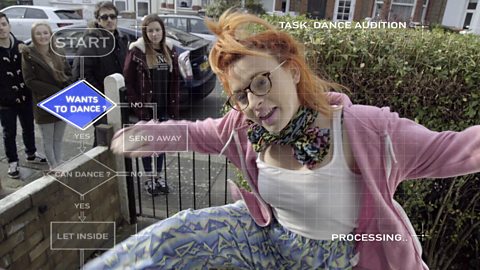1. Your online presence
How much do you think about what you write on social media?
What might seem a throwaway comment could get you in serious trouble. Whether itâs a review, a blog entry, a tweet or a Facebook post, what you write online has the potential to reach an audience of thousands or even millions. With great power comes great responsibility.
Anything you post online is considered publishing and held to the same legal standard as a newspaper. Your online persona is often your first impression, so would you say face to face what you write online? Take a simple to test discover the the legal and practical consequences of getting it wrong.
2. Take the test
Find out how risky you are being on social media.
3. How do you interact online?
Nathalie Nahai explores why we take risks online we wouldn't in person by looking at examples of how one post can change your life.
How do you interact online?
Presented by Natalie Nahai, author and web psychologist
As we interact with each other online, itâs really easy to develop a sense of anonymity. We may start to lose our inhibitions and take risks and maybe even act out of character. And the opportunity to be physically invisible means that we donât necessarily think quite as much about how we look and how we sound.
So we can get reckless and sometimes fail to see the consequences. But itâs your account so you can say whatever you like! Right?
Wrong! Believe it or not we are all legally and socially accountable for everything that we put online â whether thatâs a picture, a video, a tweet or even a like or a share on Facebook. As a rule of thumb, it pays to remember that anything and everything that you put online can be recorded and shared even without your knowledge or consent.
In 2010, frustrated by cancelled flights, Paul Chambers posted this message on Twitter. He was arrested, his house was searched and his mobile phone, laptop and computer hard drives were all confiscated.
He was later charged with "sending a public electronic message of menacing character", was found guilty, fined and lost his job.
He appealed three times, and on the third was acquitted - but heâd already paid a high price.
Itâs not just about whatâs legal or illegal â even posts that donât break the law can have far-reaching consequences. Take for instance; PR Guru Justine Sacco who in 2013 posted a tweet to what she thought was just a small group of friends, before boarding a plane to South Africa.
Many people saw the tweet and thought it was very offensive and as Sacco slept on the plane oblivious to the twitter storm that was brewing, her tweet went viral and became a number one worldwide trend.
What followed was a stream of abuse, trolling and even death threats. Sacco apologized and accepted responsibility for a tweet that offended many, but was the reaction on twitter proportionate? Would we have responded this way if the comment had been made by a famous comedian? Why did people react like this?
Group mentality took over, and âallowedâ people to behave in ways that they would never have considered offline.
Reading remarks by others only escalated this aggression by giving people what seemed like permission to react in equally extreme ways.
They acted as one in handing down the sentence to Sacco, who in the time it took her to get from London to Cape Town, saw her life and her career ruined.
4. How can I protect myself online?
Nathalie Nahaiâs top tips for interacting online
How to avoid costly mistakes when using social media.
Always know what your privacy settings are on all your social media accounts.
If you're using an app that pulls in data from your social accounts make sure you're not sharing sensitive information across different platforms.
Check out your employerâs social media policy. If they donât have one yet they will soon.
When you experience something that angers or upsets you, stop and take 10 deep breaths before deciding whether or not to post.
Donât write anything online that you wouldn't say face to face.
Never post when you're angry or drunk â youâll only regret it later.
Even if youâre using an alias account, applications can be made to a court to force service providers to disclose information if you break the law.
Always remember anything you post online can be used and shared without your knowledge or consent.
Learn more about this topic:
How to think like a computer. collection
Explore the principles of computing and computational thinking in these short films for secondary schools.

L8R Youngers 3. collection
Drama series for secondary schools exploring sexuality and the pressure to have sex, alcohol abuse, financial pressures and the impact of social media.

External learning-related websites:
- - Lesson plan pack designed to help students consider their personal brand and digital footprint (Free registration required.)
- - Resource developed with support from the mental health anti-stigma and discrimination campaign, Time to Change. (Free registration required.)